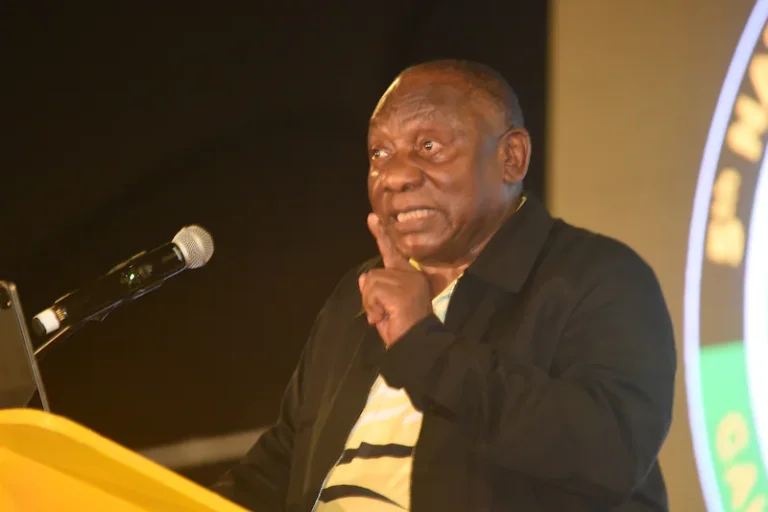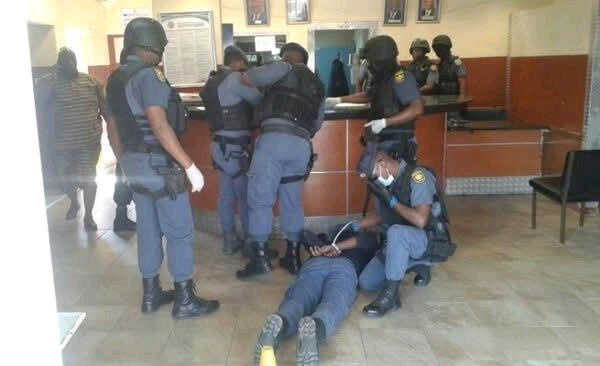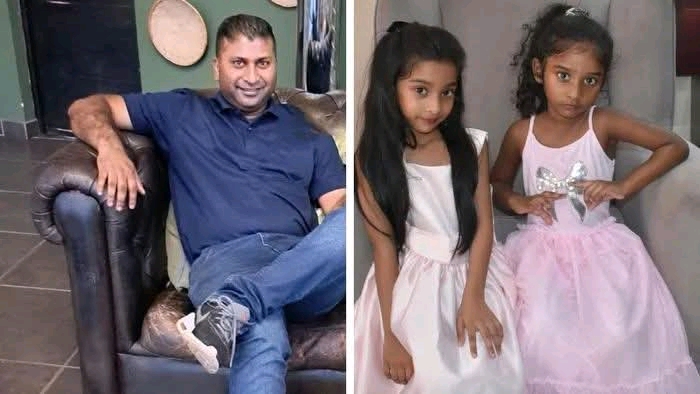
Pretoria, Gauteng — KwaZulu-Natal Provincial Police Commissioner, General Nhlanhla Mkhwanazi, has made explosive claims that the Presidency interfered with critical police investigations in the province, allegedly in favor of a major mining company. His testimony came during the second day of the Madlanga Commission of Inquiry’s public hearings, held at the Brigitte Mabandla Justice College in Tshwane on 19 September 2025.

According to Mkhwanazi, the Presidency became directly involved in the investigation of the 2021 murder of Nico Swart, the general manager of Richards Bay Minerals (RBM). Swart’s killing shocked the mining community and raised questions about violent intimidation linked to economic interests in KwaZulu-Natal. Mkhwanazi testified that he had dispatched a special team of detectives to pursue the case, but their progress was limited.
A Phone Call from National Commissioner Masemola
Mkhwanazi told the inquiry that he eventually recalled the detectives from Richards Bay back to Durban as part of a cost-cutting measure, expecting them to continue their work from the regional office. Shortly afterward, he received a call from National Police Commissioner General Fannie Masemola.
Masemola reportedly asked whether Mkhwanazi had withdrawn the detectives, before instructing him to redeploy them to Richards Bay. The reason, Mkhwanazi claimed, was that a complaint had been lodged directly by the Presidency regarding the recall. To him, this demonstrated clear interference from the highest office in the land, raising troubling concerns about the independence of policing in South Africa.
Wider Allegations of Political Meddling
Mkhwanazi’s testimony stretched beyond the Swart case. He warned that South Africa’s justice system faces the risk of collapse if political interference continues unchecked. He implicated several political figures, including National Coloured Congress president Fadiel Adams and Democratic Alliance MP Dianne Kohler Barnard. He also pointed to troubling connections between senior police officers and criminal suspects.
In particular, he named Ekurhuleni top cop General Julius Mkhwanazi and alleged ties with Vusimuzi “Cat” Matlala, who faces attempted murder charges. According to the commissioner, the erosion of integrity within the justice system enables repeat offenders to escape accountability. He cited the case of Fisokuhle Ntuli, currently on trial for the murder of Bafana Bafana star Senzo Meyiwa, as an example of how repeat offenders slip through the cracks.
Tensions at the Commission
The hearings have already seen moments of tension. On the opening day of his testimony, Mkhwanazi refused to shake hands with politician Dennis Victor Bloem, sparking debate on social media. He also clashed with Fadiel Adams, accusing the MP of gaining access to sensitive crime intelligence reports. Adams dismissed the allegation, claiming the information had been anonymously slipped under his office door.
Broader Implications
The Madlanga Commission of Inquiry continues to draw national attention, with political parties, civil society, and law enforcement leaders closely following the revelations. The commission was recently challenged in court by the Mkhonto Wesizwe Party, but the Gauteng High Court allowed its work to proceed.
Mkhwanazi’s statements raise pressing questions about the separation of powers, accountability, and whether South Africa’s policing institutions can withstand political pressure. As the hearings continue, the public awaits further revelations that could reshape the country’s approach to governance, policing, and justice.







